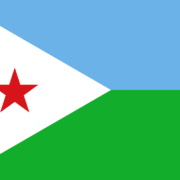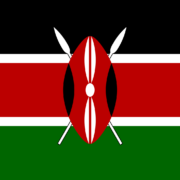East Africa
Somalia
Somalia, situated in the Horn of Africa, is known for its extensive coastline along the Indian Ocean and its rich maritime history. The country has a unique cultural heritage influenced by Arab, Persian, and African traditions.
East Africa
Somalia, situated in the Horn of Africa, is known for its extensive coastline along the Indian Ocean and its rich maritime history. The country has a unique cultural heritage influenced by Arab, Persian, and African traditions.
Population: 17,339,000
Main Religion: Islam
Christians: Only a few hundred
Somalia is a country in eastern Africa, located in the Horn of Africa. Much of Somalia is semidesert. The central and southern regions are flat, while the northern region rises to form rugged mountain ranges. Only a tiny proportion of its land is arable, though more than half is grazeable. Most of the people are nomadic or seminomadic Somalis.
Freedom House describes Somalia as “not free”, assigning a score of 8 our of 100 total freedom’s score.
The federal parliamentary republic is led by Prime Minister Hamza Abdi Barre. Since the collapse of an authoritarian regime in 1991, the government has struggled to re-establish a functioning state. In 2012 limited, indirect elections brought a federal government to power. By 2016, it had established five federal member states, though these semiautonomous regions are often at odds with the central government.
The government’s territorial control is also contested by a separatist government in Somaliland and by al Shabaab, an Islamic militant group. No direct national elections have been held to date, and political affairs remain dominated by clan divisions. Amid ongoing insecurity, human rights abuses by both state and nonstate actors occur regularly.
Somalia’s 2012 Constitution underscores Islam as the state religion and elevates Sharia law above all else, effectively banning the propagation of other religions. The overwhelming Sunni Muslim majority views Christians as culturally damaging.
Middle East Concern states: The provisional federal constitution establishes Islam as the State religion and provides that all legislation must be consistent with Islamic principles. Freedom of religious practice is affirmed, though the propagation of non-Islamic religions is forbidden. The constitutions of Somaliland and Puntland contain similar provisions, but also stipulate that a Muslim cannot convert to another religion. Under the Penal Code of 1963, which notionally applies to the whole country, blasphemy and the defamation of Islam are criminal offences. In principle, the federal government has powers to register religious groups, but in practice no Christian churches have official recognition.
The group further states: A Somali is supposed be a Muslim. There is no scope to adhere another religion.
Due to Somalia’s strong clan and family culture, Somalis who choose to leave Islam are likely to face strong family and societal pressure, including violent responses from family members. Those considered apostates may also face severe sanctions under Islamic law, including the possible death penalty. Besides societal pressure, Christians have to fear al-Shabaab, particularly in the south, where al-Shabaab seeks to implement a strict form of Islamic law. The threat from al-Shabaab is felt within Somali communities in neighbouring countries as well – several atrocities have been carried out against Somali Christian targets in the Garissa area of northern Kenya as part of a wider al-Shabaab campaign.

 Kenya
Kenya